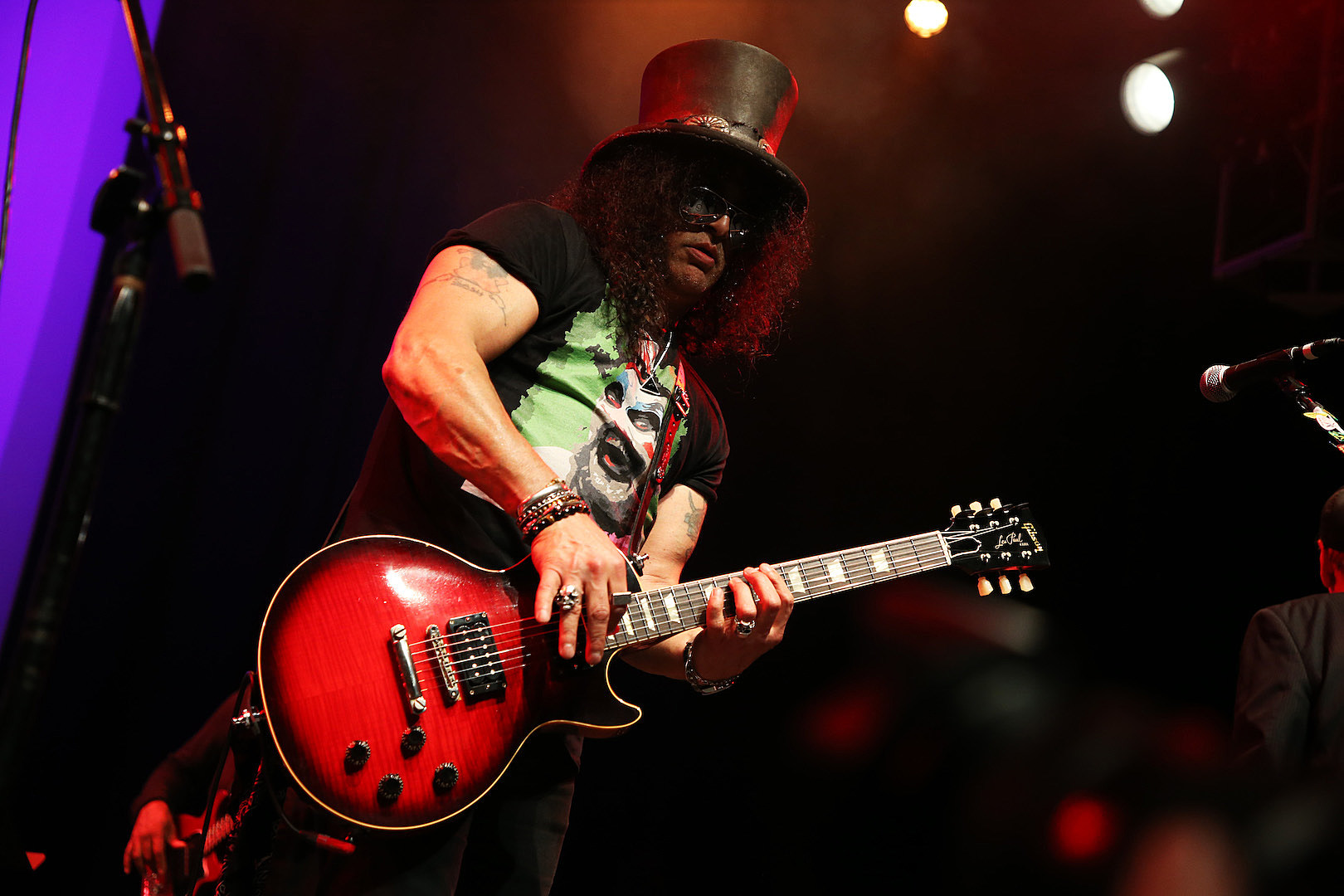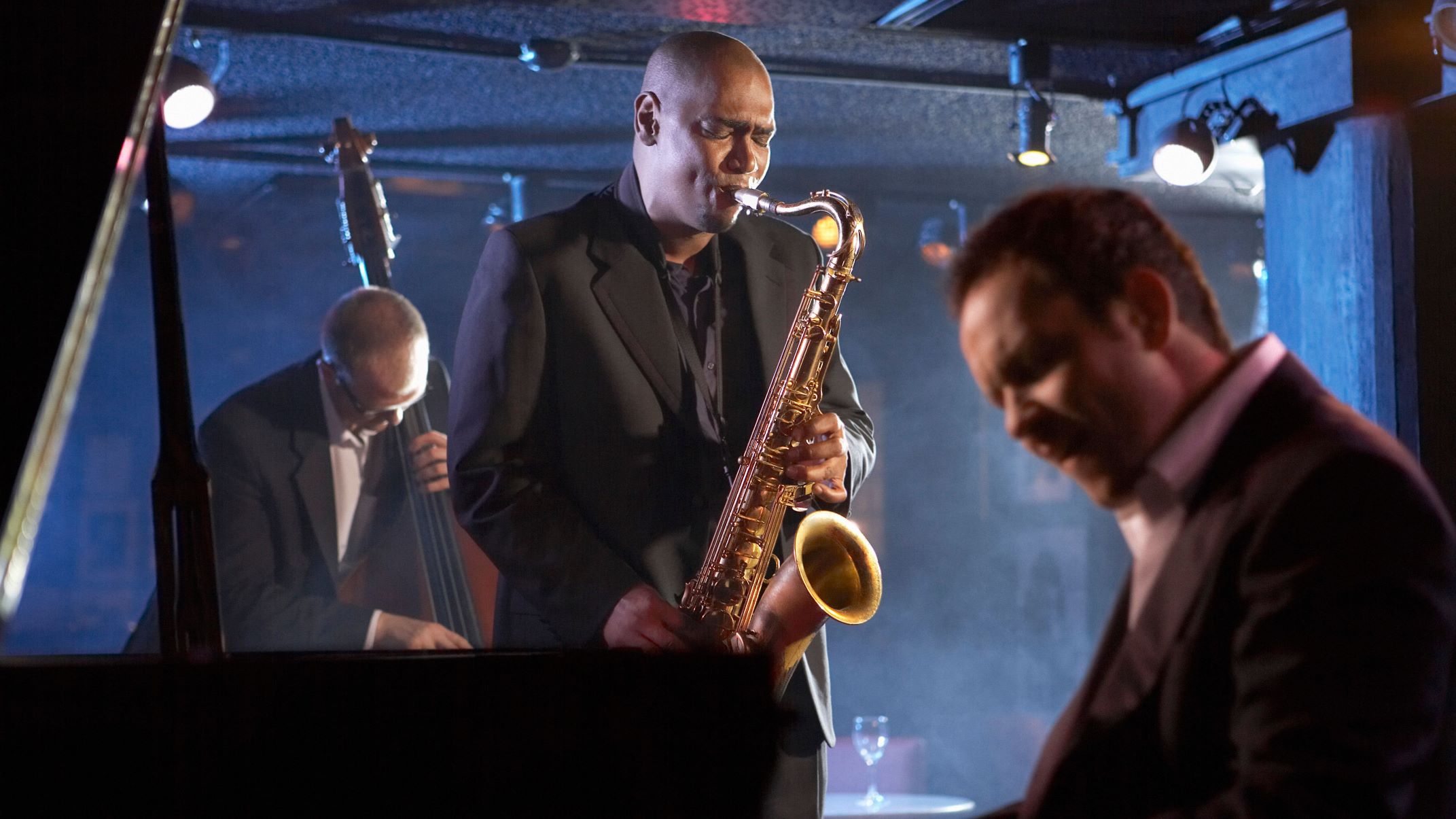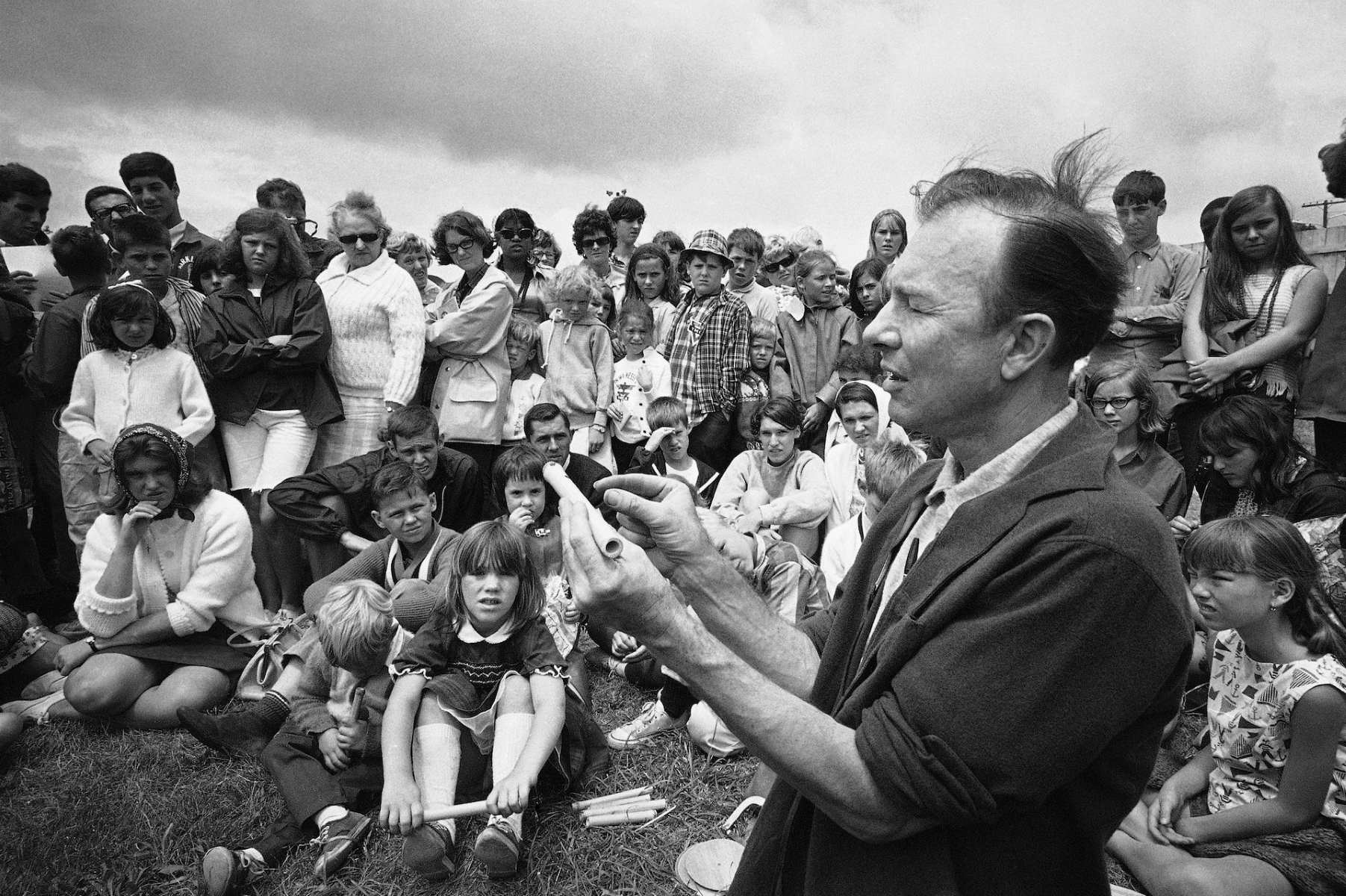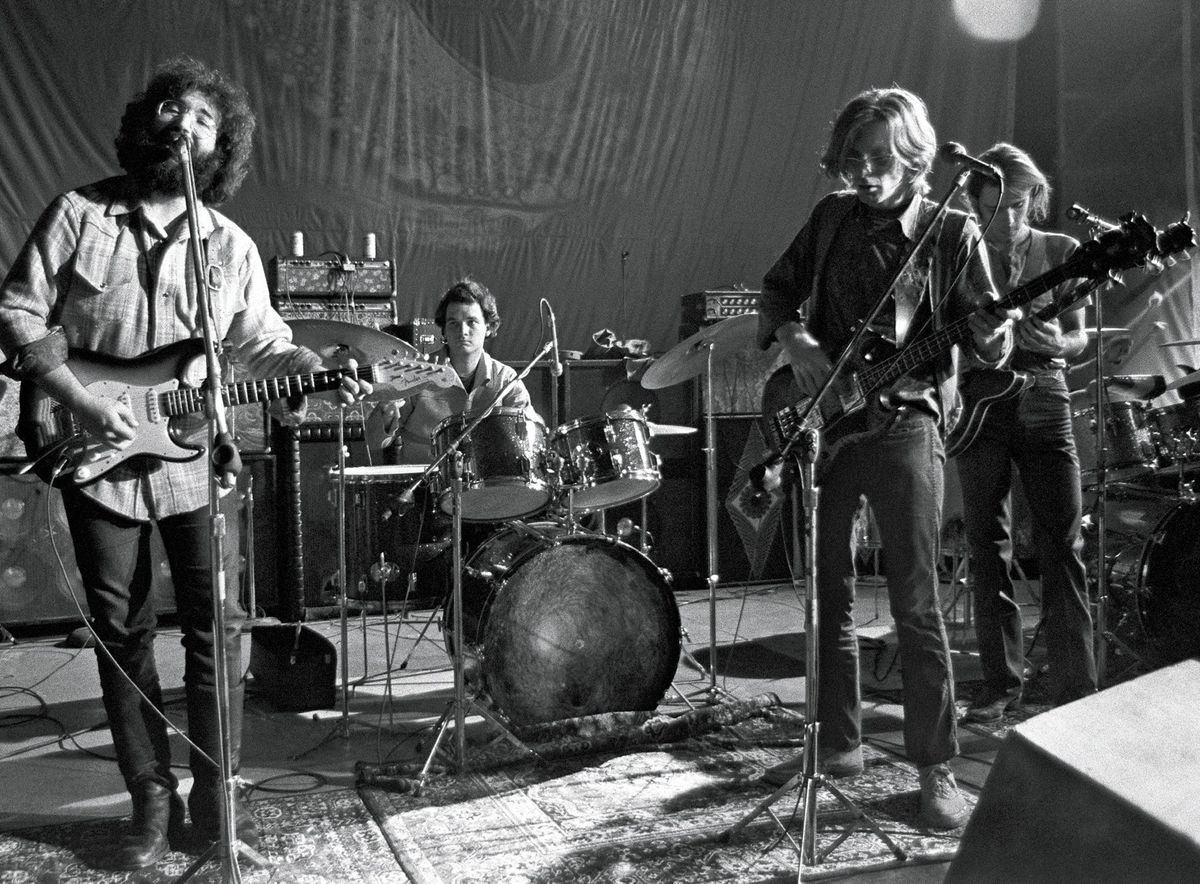

Rock
How Has Rock Music Influenced Society
Modified: February 15, 2024
Discover the powerful influence of rock music on society and culture throughout history. Explore how this genre has shaped and transformed our world.
(Many of the links in this article redirect to a specific reviewed product. Your purchase of these products through affiliate links helps to generate commission for AudioLover.com, at no extra cost. Learn more)
Table of Contents
- Introduction
- Origins of Rock Music
- Evolution of Rock Music
- Impact of Rock Music on Society
- Influence of Rock Music on Fashion and Style
- Rock Music as a Platform for Protest
- Rock Music’s Influence on Cultural Movements
- Rock Music’s Effect on Identity and Youth Culture
- Rock Music’s Impact on Gender Roles
- Conclusion
Introduction
Rock music has long been regarded as a powerful force in shaping society, influencing cultural movements, and challenging societal norms. From its humble beginnings in the 1950s to its continued reign as one of the most popular genres today, rock music has transcended generations and captivated audiences around the world.
What makes rock music so unique is not only its distinctive sound, characterized by powerful guitar riffs and energetic drum beats, but also its ability to convey powerful messages and evoke emotions in its listeners. Whether it’s through anthems of rebellion, songs of love and loss, or calls for social change, rock music has the power to resonate with people from all walks of life.
In this article, we will explore the origins and evolution of rock music, as well as its profound influence on society. We will dive into the impact of rock music on fashion and style, its role as a platform for protest, and its significant influence on cultural movements. Additionally, we will examine how rock music has shaped identity and youth culture, as well as its impact on gender roles.
Join us on this journey as we delve into the world of rock music and discover the profound ways it has shaped and transformed society.
Origins of Rock Music
The roots of rock music can be traced back to the mid-20th century when elements of rhythm and blues, country, and gospel music merged to create a new and exciting sound. It emerged as a distinct genre in the 1950s, primarily in the United States, and quickly gained popularity among young audiences.
One of the pivotal figures in the development of rock music is Chuck Berry. His innovative guitar playing and energetic stage presence had a profound impact on the genre. Songs like “Maybellene” and “Johnny B. Goode” showcased his virtuosity and laid the foundation for the future of rock music.
Another influential figure was Elvis Presley, often referred to as the “King of Rock and Roll.” His charismatic persona, fusion of various musical styles, and provocative stage performances captured the attention of millions of fans worldwide. Presley’s hit songs like “Hound Dog” and “Jailhouse Rock” set the stage for the rock music revolution.
As the 1960s dawned, rock music continued to evolve and diversify. Bands like The Beatles, The Rolling Stones, and The Who emerged, each with their own unique sound and style. The British Invasion, as it became known, brought a fresh wave of rock music to the forefront and introduced a new generation of artists who would leave an indelible mark on the genre.
One defining characteristic of early rock music was the electric guitar. The instrument became synonymous with the genre, allowing musicians to experiment with new sounds and push the boundaries of traditional music. The electric guitar, combined with the raw energy of rock and roll, created a rebellious and captivating sound that resonated with young audiences.
Overall, the origins of rock music can be attributed to a blend of various musical influences and the creative genius of pioneering artists. It was through their innovation and groundbreaking contributions that rock music was born and set on a course to become one of the most influential genres of all time.
Evolution of Rock Music
Since its inception, rock music has undergone an incredible evolution, constantly adapting to the changing musical landscape and the creative visions of artists. As the years passed, new subgenres emerged, pushing the boundaries and expanding the scope of rock music.
In the 1960s and 1970s, rock music experienced a golden era with the rise of psychedelic rock, progressive rock, and hard rock. Bands like Pink Floyd, Led Zeppelin, and Black Sabbath experimented with unconventional song structures, complex instrumentation, and thought-provoking lyrics, pushing rock music into unexplored territories.
In the 1980s, rock music took a turn towards mainstream popularity with the advent of glam rock and hair metal. Bands like Bon Jovi, Def Leppard, and Guns N’ Roses dominated the airwaves with their catchy hooks and extravagant stage performances. This era showcased rock music’s ability to captivate audiences and create larger-than-life rock stars.
The 1990s saw the emergence of alternative rock, with bands like Nirvana, Pearl Jam, and Soundgarden leading the way. This subgenre brought a raw, grunge-infused sound and introspective lyrics that resonated with a disillusioned generation. The popularity of alternative rock demonstrated that rock music could be both authentic and commercially successful.
In the new millennium, rock music continued to evolve with the rise of indie rock, pop-punk, and garage rock revival. Bands like The Strokes, Arctic Monkeys, and The White Stripes infused rock music with a fresh energy, drawing inspiration from the past while adding their own unique twist.
Today, rock music remains a vibrant and diverse genre, with artists continuing to push the boundaries and challenge conventions. Subgenres such as post-rock, metalcore, and indie folk have gained traction, showcasing the ever-evolving nature of rock music.
The evolution of rock music is a testament to its versatility and adaptability. It has proven itself capable of reinventing and redefining itself, appealing to new audiences while still honoring its roots. Whether it’s through nostalgic throwbacks or groundbreaking experimentation, rock music continues to captivate and inspire millions of fans worldwide.
Impact of Rock Music on Society
Rock music has had a profound impact on society, influencing cultural norms, challenging the status quo, and giving a voice to the marginalized. It has served as a vehicle for expressing emotions, rallying against injustice, and providing a sense of belonging for generations of fans.
One notable aspect of rock music’s impact on society is its ability to transcend social barriers. Regardless of age, race, or background, rock music has the power to unite people through its universal appeal. Concerts and music festivals become spaces where fans can come together, celebrate their shared love for the genre, and experience a sense of community.
Furthermore, rock music has often been associated with rebellion and counterculture. Throughout history, rock musicians have used their platform to challenge societal norms and advocate for change. Whether it’s through protest songs, politically charged lyrics, or performances that defy convention, rock music has been at the forefront of many social and political movements.
Rock music has also left an indelible mark on fashion and style. From the leather jackets and ripped jeans of the punk movement to the glamor and excess of the hair metal era, rock music has influenced trends and subcultures. It has empowered individuals to express their identities and push the boundaries of mainstream fashion.
Moreover, rock music has provided solace and inspiration to individuals going through difficult times. Songs of love, loss, and resilience have resonated with listeners, offering a space for emotional catharsis and connection. The lyrics and melodies of rock music have provided comfort and strength to countless individuals, serving as a form of therapy in times of turmoil.
Rock music has also played a significant role in shaping the perceptions and attitudes towards societal issues. From advocating for civil rights and equality to addressing environmental concerns, rock musicians have used their music as a tool for raising awareness and fostering dialogue on pressing social issues.
Overall, the impact of rock music on society is multifaceted and far-reaching. It has not only brought people together but has also sparked conversations, challenged authority, and provided an outlet for self-expression. As a cultural force, rock music continues to shape society and inspire generations to question the world around them.
Influence of Rock Music on Fashion and Style
Rock music has long been a driving force in shaping fashion and style, pushing the boundaries of conventional dress codes and inspiring countless fashion trends. From its early days as a rebellious genre to its continued influence on contemporary fashion, rock music has left an indelible mark on the world of style.
One of the key aspects of rock music’s impact on fashion is its ability to embody a sense of rebellion and nonconformity. Musicians like David Bowie and Freddie Mercury challenged traditional notions of gender and defied societal norms with their flamboyant and androgynous outfits. Their bold and daring fashion choices not only reflected their artistic vision but also inspired a generation of fans to express themselves authentically.
The punk rock movement of the 1970s made a lasting impact on fashion as well. Characterized by ripped clothing, safety pins, and DIY aesthetics, punk fashion served as a symbol of resistance and a rejection of mainstream ideals. Bands like The Ramones and The Sex Pistols influenced not only the music scene but also the fashion world, with their edgy and provocative style becoming synonymous with rebellion.
The 1980s witnessed the rise of glam rock and hair metal, bringing with it a wave of extravagant fashion choices. Bands like Motley Crue and Poison showcased over-the-top looks characterized by spandex, leather, and an abundance of hairspray. This glamorized and excessive fashion became a form of self-expression, allowing fans to embrace their wild side and embrace a larger-than-life aesthetic.
The grunge movement of the 1990s introduced a grittier and more minimalist fashion sensibility. Bands like Nirvana and Pearl Jam popularized a “just rolled out of bed” look with flannel shirts, ripped jeans, and unkempt hair. This relaxed and understated style, born out of the anti-establishment ethos of grunge music, had a significant impact on fashion, ushering in an era of casual and effortless cool.
Rock music’s influence on fashion continues to be felt in contemporary times, with various subcultures and genres contributing to the ever-evolving landscape of style. From the revival of vintage rock band t-shirts to the fusion of rock elements with streetwear, the aesthetic of rock music can be seen in the wardrobes of fashion-forward individuals worldwide.
Ultimately, rock music has been a catalyst for individuality and self-expression, encouraging fans to embrace their unique style and challenge societal norms. It has blurred the lines between music and fashion, allowing artists and listeners alike to use their clothing choices as an extension of their personal identities.
In summary, rock music’s influence on fashion and style has been profound and enduring. It has provided a platform for innovation, creativity, and self-expression, leaving an indelible mark on the fashion industry and inspiring generations of trendsetters.
Rock Music as a Platform for Protest
Throughout history, rock music has served as a powerful platform for protest and social change. From its earliest days, the genre has been intertwined with activism, with musicians using their platform to raise awareness, challenge societal injustices, and inspire movements for equality and justice.
One of the most iconic examples of rock music serving as a platform for protest is the anti-war movement of the 1960s and 1970s. Artists like Bob Dylan, Joan Baez, and Creedence Clearwater Revival used their music to rally against the Vietnam War, giving voice to the frustration and disillusionment felt by many young people at the time. Songs like Dylan’s “Blowin’ in the Wind” and Buffalo Springfield’s “For What It’s Worth” became anthems for a generation seeking peace and social change.
Beyond anti-war sentiments, rock music has taken a stand on various social issues. During the civil rights movement, artists like Sam Cooke and Nina Simone used their music to advocate for racial equality and justice. Their songs not only expressed the pain and struggle of marginalized communities but also galvanized listeners to join the fight for racial justice.
In more recent times, rock musicians have continued to use their art to address pressing issues. Rock bands like Rage Against the Machine and System of a Down have been vocal about political corruption, economic inequality, and human rights abuses. With their hard-hitting lyrics and intense performances, they have sparked conversations and ignited a sense of activism among their fanbase.
Rock music has also played a significant role in giving voice to marginalized communities and shedding light on social injustices. Artists like Bruce Springsteen and U2 have used their music to highlight the struggles of the working class and advocate for economic justice. They have used their fame and influence to raise funds and awareness for organizations fighting poverty and inequality.
In addition to raising awareness, rock music has been a catalyst for organizing and mobilizing protests. Live Aid, organized by Bob Geldof and Midge Ure in 1985, brought together some of the biggest rock musicians of the time to raise funds for famine relief in Africa. The event not only garnered immense support but also brought global attention to the issue, inspiring people to contribute to the cause.
Overall, rock music’s penchant for protest and social change is deeply rooted in its history and ethos. By providing a platform for artists to express their concerns and reach a wide audience, rock music has been a powerful force in inspiring activism, raising awareness, and challenging the status quo. It continues to be a source of inspiration and motivation for individuals seeking to bring about positive change in the world.
Rock Music’s Influence on Cultural Movements
Rock music has played a significant role in shaping cultural movements throughout history. From the counterculture of the 1960s to the emergence of various subcultures, rock music has influenced the way people think, dress, and express themselves.
During the 1960s, rock music became closely associated with the counterculture movement, which sought to challenge mainstream ideals and promote alternative lifestyles. Artists like The Beatles and Jimi Hendrix embodied the spirit of the time, using their music and influence to advocate for peace, love, and social change. The counterculture movement influenced fashion, art, and even the way people approached politics and personal relationships.
In the 1970s, the punk rock movement emerged as a cultural phenomenon, characterized by its rebellious spirit, DIY ethic, and anti-establishment attitude. Bands like the Sex Pistols and The Clash pushed against societal norms with their aggressive music and provocative lyrics. Punk rock not only influenced the music scene but also left a lasting impact on fashion, visual arts, and youth culture. It promoted individuality and pushed back against conformity.
The New Wave movement of the 1980s brought a fresh wave of experimentation and artistic innovation. Artists like David Bowie and Blondie fused elements of rock, pop, and electronic music, paving the way for a new generation of musicians and influencing the fashion and style of the era. The New Wave movement celebrated diversity and embraced the fusion of different genres and cultures.
The grunge movement of the 1990s had a profound impact on youth culture and alternative music. Bands like Nirvana and Pearl Jam represented the disillusionment and angst of a generation, rejecting the polished sound of mainstream music for a raw and authentic approach. The grunge movement popularized a more laid-back and unpolished fashion style, with flannel shirts, ripped jeans, and unkempt hair becoming iconic symbols of the time.
Rock music has continued to influence cultural movements in the modern era as well. The indie rock movement of the 2000s brought a DIY ethos and a focus on independent music production, fostering a diverse and vibrant music scene. The influence of indie rock extended beyond music, influencing fashion trends, art movements, and even the way people consume and share media.
Rock music has always been a reflection of the times, capturing the collective thoughts and emotions of society. Its ability to resonate with people on a deep level has made it a catalyst for cultural movements and a driving force for social change. Rock music continues to inspire and shape cultural movements, providing individuals with a sense of identity, community, and empowerment.
Rock Music’s Effect on Identity and Youth Culture
Rock music has had a profound effect on identity and youth culture, shaping the way individuals express themselves, form their identities, and find a sense of belonging. Through its rebellious spirit, relatable lyrics, and powerful sound, rock music has become a source of inspiration and empowerment for generations of young people.
One of the key ways rock music has impacted youth culture is by providing an avenue for self-expression. The music resonates with individuals who may feel misunderstood or marginalized, giving them a voice and a sense of belonging. From punk rock enthusiasts donning mohawks and leather jackets to metalheads expressing their love for heavy riffs and dark aesthetics, rock music has allowed young people to embrace their unique identities and reject societal expectations.
Rock music’s lyrics often tackle themes of identity, authenticity, and social issues, providing a relatable narrative for listeners to connect with. Songs about love, rebellion, and personal growth have become anthems for youth experiencing the complexities of adolescence and the challenges of finding their place in the world. Whether it’s finding solace in the introspective lyrics of Radiohead or rallying against the system with the politically charged songs of Rage Against the Machine, rock music has served as a mirror for young people exploring their sense of self and purpose.
The influence of rock music on fashion and style also plays a significant role in youth culture. The iconic fashion choices associated with rock music, from leather jackets and band t-shirts to bold hairstyles and accessories, have become symbols of individuality and rebellion. Young people often adopt these fashion trends as a way to express their love for the genre and signal their affiliation with a particular subculture.
Furthermore, rock music has been a driving force behind movements and subcultures that celebrate inclusivity and diversity. Embracing rock music doesn’t require conforming to a single mold or adhering to a specific set of norms. Instead, it encourages individuals to embrace their unique interests, passions, and experiences, fostering a diverse and accepting community.
Rock music has also played a role in shaping the attitudes and values of youth culture. Artists often use their platform to promote social change, address issues of inequality and injustice, and encourage activism. The music becomes a rallying cry for young people to challenge the status quo, advocate for their beliefs, and strive for a more inclusive and equitable society.
In summary, rock music has had a transformative effect on identity and youth culture. It has provided a means of self-expression, allowed individuals to explore their sense of self, and fostered a sense of community and empowerment. Through its lyrics, fashion, and cultural movements, rock music has inspired young people to embrace their individuality, challenge societal norms, and pursue their passions with passion and authenticity.
Rock Music’s Impact on Gender Roles
Rock music has had a significant impact on gender roles, challenging traditional expectations and contributing to the ongoing conversation surrounding gender equality. Throughout its history, rock music has provided a platform for both male and female artists to defy stereotypes, break barriers, and shape perceptions of gender in the music industry and beyond.
Historically, the rock music industry has been predominantly male-dominated, with the image of the rock star often associated with masculinity and rebellion. However, female artists have played a vital role in breaking through these gender barriers and paving the way for future generations. Trailblazers like Janis Joplin, Joan Jett, and Stevie Nicks showed that women could rock just as hard as their male counterparts, challenging the notion that rock music was solely a male domain.
Rock music has also provided a platform for artists to explore gender identity and expression. Artists like David Bowie and Prince pushed boundaries and defied conventional notions of masculinity, embracing androgyny and cultivating a fluid image that challenged societal expectations. By doing so, they helped to create more inclusive spaces for individuals to express their own gender identities within and outside of the music industry.
Furthermore, rock music and its associated subcultures have often contributed to the rise of feminist movements. Riot grrrl bands of the 1990s, like Bikini Kill and Sleater-Kinney, used their music as a means of addressing gender inequality and advocating for women’s rights. Their lyrics challenged patriarchal systems, fostering a sense of empowerment and solidarity among female listeners.
However, it is important to acknowledge that rock music has not always been free from gender stereotypes and problematic behaviors. The industry has, at times, perpetuated sexism and objectification, both in lyrics and within the portrayal of female fans. Nevertheless, feminist movements within rock music and the wider music industry have continued to challenge these attitudes, advocating for equal representation, respect, and recognition for women in rock music.
Rock music has also played a role in breaking down gender barriers within performance and instrumental abilities. Female musicians have defied societal expectations by mastering traditionally male-dominated instruments such as the guitar, drums, and bass. This has not only challenged the perception of women’s musical prowess but also inspired younger generations of girls to pursue their own musical ambitions.
Overall, rock music’s impact on gender roles has been complex and multifaceted. While it has at times perpetuated gender stereotypes, it has also been a catalyst for progress and change. Through the defiance of traditional gender expectations, the promotion of inclusivity, and the creation of feminist movements, rock music has contributed to a more inclusive and diverse music industry while inspiring individuals to challenge gender norms in their own lives.
Conclusion
Rock music’s influence on society is undeniable. From its origins in the 1950s to its continued prominence today, rock music has left an indelible mark on culture, fashion, activism, and the very fabric of society. It has served as a platform for protest, a source of inspiration, and a means of self-expression for millions of people around the world.
The origins of rock music can be traced back to innovative artists who blazed a trail in the genre’s early days. From Chuck Berry and Elvis Presley to The Beatles and beyond, rock music evolved and diversified, taking on various subgenres and exploring new sonic territories.
Rock music has had a profound impact on society through its ability to challenge norms and initiate societal change. From the anti-war movement of the 1960s to the voices advocating for civil rights and equality, rock musicians have used their platform to promote activism and inspire social movements.
The influence of rock music extends beyond the music itself. It has shaped fashion trends, from the rebellious styles of punk to the extravagant glamor of the hair metal era. Rock music has also influenced cultural movements, providing a sense of identity and belonging for individuals who identify with its messages of rebellion and authenticity.
Moreover, rock music has played a role in shaping gender roles and challenging traditional expectations. Female artists have defied stereotypes and broken barriers in the male-dominated industry, while rock music has been a platform for conversations surrounding gender equality and expression.
In conclusion, rock music’s impact on society is far-reaching and multi-faceted. Its ability to connect with people, inspire change, and foster a sense of community has made it one of the most influential genres in history. As rock music continues to evolve and adapt, it will continue to shape and influence society, providing a voice for the unheard and empowering generations to come.











